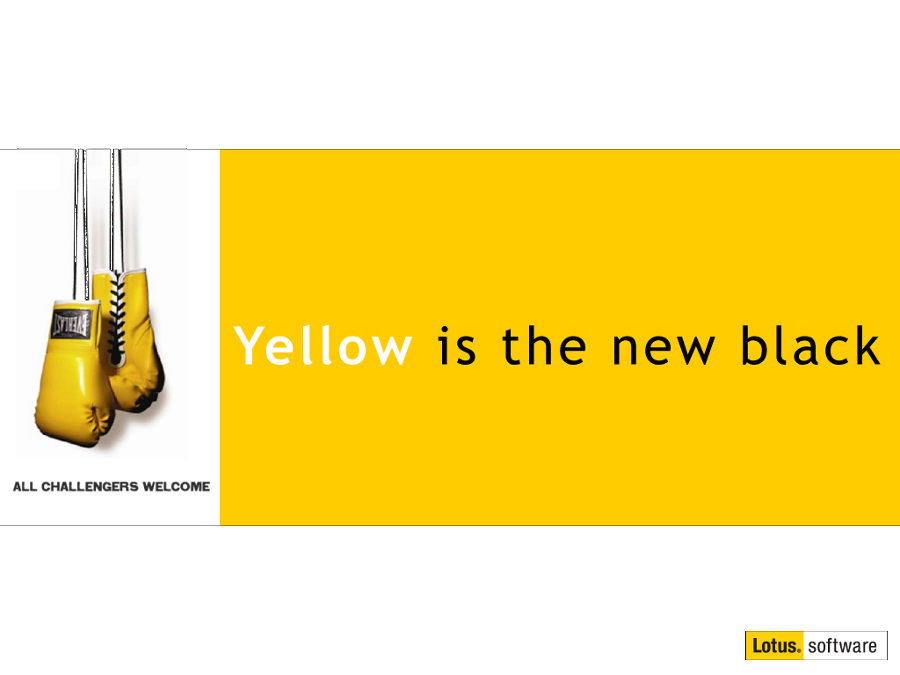Microsoft Excel, the greatest development environment known to ... End Users.
Mat Newman April 14 2010 22:00:00
A little while ago I wrote about content management, and why I trust my content to the ultimate content manager: Lotus Notes.About the time I wrote that article I had been working with a customer to move into a Lotus Notes project management system from - you guessed it - Microsoft Excel.
Mick Moignard's recent comments also got me thinking. If Notes is so great, why don't more users love it?
The last couple of weeks has provided me with the answer.
I have been doing a lot of Excel training lately, especially concentrating on advanced functionality within the Excel software. As part of my training classes, I always encourage participants to bring along their own work - or examples of other peoples - that they are having trouble understanding or working with. There are some really strong reasons for conducting training in this manner:
1. You can cover the same concepts as you are supposed to be delivering from the "standard" course outline,
2. The user gets a better understanding of a concept and functionality because they can see it in use in a relevant context, and
3. So what if you don't follow the book. If the customer "gets" what they are paying for, and you have achieved the same outcome as following some meaningless example from a book, where's the foul?
I know a lot of Instructors don't feel comfortable stepping outside a student guide or lab exercises in order to conduct a course. My own opinion on this: if you're not confident enough with a piece of software to "wing it" with live examples in a training class, what on earth are you doing teaching a class where someone might ask you a question slightly off the course outline?
Back to the topic. What I have seen in my Excel sessions in the last couple of months is some REALLY clever stuff done by END USERS. I'm talking about exports of data from ERP systems and databases that have had some very complex Excel formulas and functions thrown at that data.
What I have constantly seen are users compiling lists of data in Microsoft Excel, and then trying to manage that data as though it were in a DATA BASE!
And here's the point:
If plain old END USERS are able to do some outstanding stuff in Excel, why do(es) IT limit them by not giving them development tools that allow them to move beyond simple list management. I believe that tools like Microsoft Sharepoint are winning users "hearts and minds" simply because it (SharePoint) allows them to do the same stuff they have always done in Excel, but now makes it more flexible and extends it to a wider audience, since the user is no longer limited to a local file stored on a share, but now extends that list-based data to a wider audience, WITHOUT emailing an excel file all over the place.
Forget about audit trail's. change history, security and data integrity. We're talking list management here, and users are primarily interested in simple list management tools. Not to mention easy data-entry (Fill-Handle anyone?)
Until we in the Lotus world can convince end-users of the benefits of audit-trails, change-history, security and data integrity; we are never going to win the end users "heart's and minds". Until IT enables end-users with tools like Domino Designer, an end user is never going to understand/accept the RAD (Rapid Application Development) environment that Lotus Software provides, let alone give up the only data management tool that their IT's SOE (Standard Operating Environment) has provided them with since Windows NT and Office 95!
Trust me ... your end users are creating everything from simple list management to full-blown project management applications within Microsoft Excel. And I really do mean full-blown cost-analysis, justification, task tracking Project Management Tools - in Microsoft Excel. Give them half a chance and someone from a shop that has already implemented Microsoft Sharepoint will join your organisation, and tell that user how they can easily extend that application to the rest of the organisation. At that point. Good-bye Lotus software.
If you don't realise how prevalent Excel (or even Word) are as user-based development tools in your own IT environment - consider the last time you filled in an expense claim, travel request or leave application. If you filled in a Word document or Excel spreadsheet (and then had to work out WHERE to email that file too), you have lost control of your IT environment. If you don't already have Notes applications that cater for these simple workflow applications that Notes excels (no pun intended) at, you MUST take a look at the types of systems your users are implementing right under your nose!
How do you fix this in your organisation?
Simple.
Either:
A. Hire a competent developer who is pro-active in searching for user "applications" based in Excel who can convert those "applications" into Lotus Notes, or
B. Train some of your "Power Users" building Excel apps in how to build forms and views in Domino designer.
I am yet to meet someone who has been trained competently in the use of Domino Designer, who has an ounce of initiative, and a drive to resolve "problems" not being addressed within a formal IT development cycle who doesn't like Notes as a development platform.
The upshot - Domino Designer as of 8.5 is now FREE. How much? Yes FREE!
Now if you can get it (Domino Designer) into your SOE, and a few power users interested in developing NOTES rather than EXCEL applications, Notes has a future in your company.
If you insist on giving users Word, Excel and Notes as base applications in your SOE - without giving them a development tool - they will continue to develop applications in the only software available to them ... Microsoft Excel.


 Feeds
Feeds